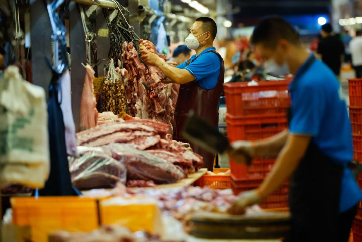-
17727404026


cross border logistics China is moving to reduce institutional transaction costs and expand market access for businesses, as part of an effort to further improve business environment, support companies and help stabilize the macro economy, according to an official document made public on Thursday.
The document, released by the General Office of the State Council, China's cabinet, contained more than 20 measures, including fully implementing the negative list for market access and starting to clear all visible and invisible hurdles to market access before October.
With regard to the implementation of the negative list, the document called for detailed plans, including the launch of a negative list for national cross-border services trade and adoption of the negative list management mechanism for overseas investors.
In particular, the document, which is dated September 7, asked departments and regions to clear up visible and invisible hurdles for market access before the end of October, as well as establish a long-term mechanism to clear such hurdles.
Bai Ming, deputy director of international market research at the Chinese Academy of International Trade and Economic Cooperation in Beijing, told the Global Times on Thursday that the measures will improve efficiency by further slashing administrative red tape, and a more unified negative list will be conducive to the development of the unified national market.

For China to push for the "dual circulation" development paradigm, in which domestic circulation will serve as the mainstay, a negative list for both domestic and foreign companies is necessary to let market factors flow undisturbed within the national market, he said.
Xi Junyang, a professor at the Shanghai University of Finance and Economics, told the Global Times on Thursday that so-called invisible hurdles are discretionary restrictions that prevent businesses from certain sectors.
"It's like a glass door. You don't see the restrictions, but you're blocked by them in reality," Xi said, noting that the measures to clear such hurdles will help attract overseas companies. "The policymakers are taking the long view," he said.
Xi also predicted that China will continue to reduce the negative list, though probably not on a large scale, because the government has already repeatedly shortened it.
Apart from the negative list, the measures also target unreasonable fees so as to relieve the burdens of market entities. For example, China will further clean up and adjust unreasonable fines and improper fines.
Securities firms, funds and other institutions are also encouraged to further reduce service charges for their customers.
From Global Times